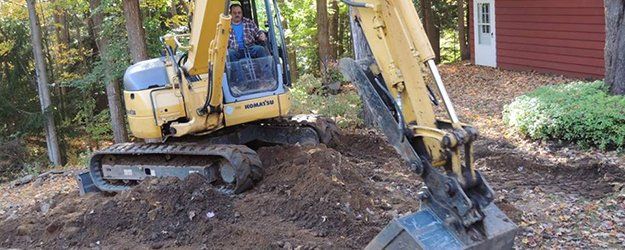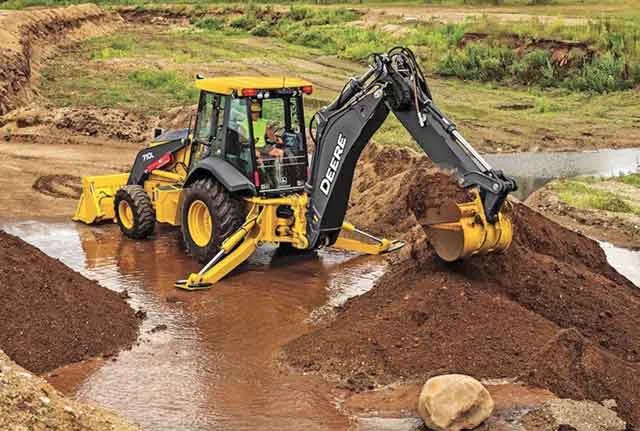Economical Lancaster Excavation - High Quality Excavation at Competitive Rates
Economical Lancaster Excavation - High Quality Excavation at Competitive Rates
Blog Article
Comprehensive Excavation Techniques: Understanding the Basics for Success
In the world of construction and civil design, the significance of efficient excavation approaches can not be overstated. The careful planning, exact implementation, and meticulous focus to detail required in excavation jobs require a comprehensive approach that encompasses different basic facets. From preliminary soil evaluation to the application of security actions and regular development tracking, understanding these core aspects is crucial for achieving success in any type of excavation venture. The true mastery lies not simply in recognizing these principles yet in flawlessly incorporating them to browse the intricacies of excavation jobs with skill.
Recognizing Excavation Job Preparation

The first stage of any type of excavation job is the preparation phase, where vital decisions are made that can significantly impact the outcome of the job. Recognizing the task budget plan, extent, and timeline restraints is critical for producing a comprehensive excavation plan that ensures the project's success.
One trick element of excavation task preparation is the development of a detailed timeline that outlines the series of milestones, tasks, and deadlines. By meticulously taking into consideration all these aspects during the planning phase, excavation tasks can be carried out efficiently and successfully, leading to successful outcomes - lancaster excavation.
Soil Analysis and Site Evaluation
Performing complete dirt analysis and site assessment is a crucial action in the prep work phase of any excavation task. Dirt evaluation entails identifying the structure, structure, and homes of the dirt at the excavation website. This information is important for understanding the dirt's bearing ability, dampness web content, and potential for erosion, which are vital consider identifying the excavation methods and tools needed for the job.
Website analysis exceeds dirt analysis and includes a more comprehensive analysis of the total website problems. This evaluation includes identifying any possible hazards, such as underground energies, environmental issues, or unpredictable surface, that might affect the excavation process. By thoroughly assessing the site, project managers can develop efficient excavation methods that prioritize safety, efficiency, and ecological protection.
Utilizing advanced technologies like ground-penetrating radar, dirt sampling, and drone surveys can enhance the precision and performance of soil analysis and site evaluation. Spending time and sources in these preliminary actions can inevitably save time and prevent pricey hold-ups or problems during the excavation process.
Tools Choice and Usage
Effective excavation jobs depend heavily on critical devices selection and application to guarantee ideal performance and productivity. Selecting the appropriate devices for the job is important in optimizing effectiveness and minimizing downtime. Variables such as the type of soil, deepness of excavation, and task extent play a substantial function in determining the most suitable devices for the job available.

Along with choosing the proper devices, appropriate use is key to project success. Operators needs to be trained to handle the devices safely and efficiently - excavating ohio. Regular maintenance checks and prompt repairs help prevent malfunctions and guarantee consistent performance throughout the task
Precaution and Rules Compliance
In the world of excavation jobs, focusing on safety actions and conformity with guidelines is vital to making sure a safe and legitimately sound operational environment. Precaution include a range of practices, including conducting comprehensive site analyses, executing proper signs and barriers, and providing ample safety and security training for all employees associated with the excavation procedure. Adherence to guidelines, such as OSHA requirements in the USA, makes certain that the excavation job meets the essential requirements to shield workers, bystanders, and the surrounding setting.

Tracking Development and Adjusting Techniques
How can project supervisors effectively track the advancement of excavation jobs and adjust their techniques as necessary to enhance outcomes? Tracking progression is necessary for guaranteeing that excavation jobs stay on track and satisfy target dates.

Final Thought
To conclude, mastering the principles of comprehensive excavation strategies is essential for the success of any type of project. By recognizing job preparation, examining soil and site problems, choosing ideal devices, following safety laws, and checking development, project supervisors can ensure a smooth and reliable excavation procedure. Applying these methods will certainly cause effective results and decrease possible threats or setbacks throughout the excavation project.
The first stage of any excavation task is the planning stage, where crucial choices are made that can considerably influence the outcome of the job. Recognizing the project range, timeline, and budget restraints is crucial for producing a detailed excavation plan that makes sure the task's success.
How can project managers successfully track the development of excavation jobs and adjust their approaches as necessary to optimize outcomes? By carefully checking progression and being eager to adapt strategies, project supervisors can improve the general success of excavation jobs.
By recognizing task preparation, analyzing soil and site conditions, selecting appropriate devices, abiding with safety regulations, and keeping track of progress, project managers can make sure a smooth and effective excavation process.
Report this page